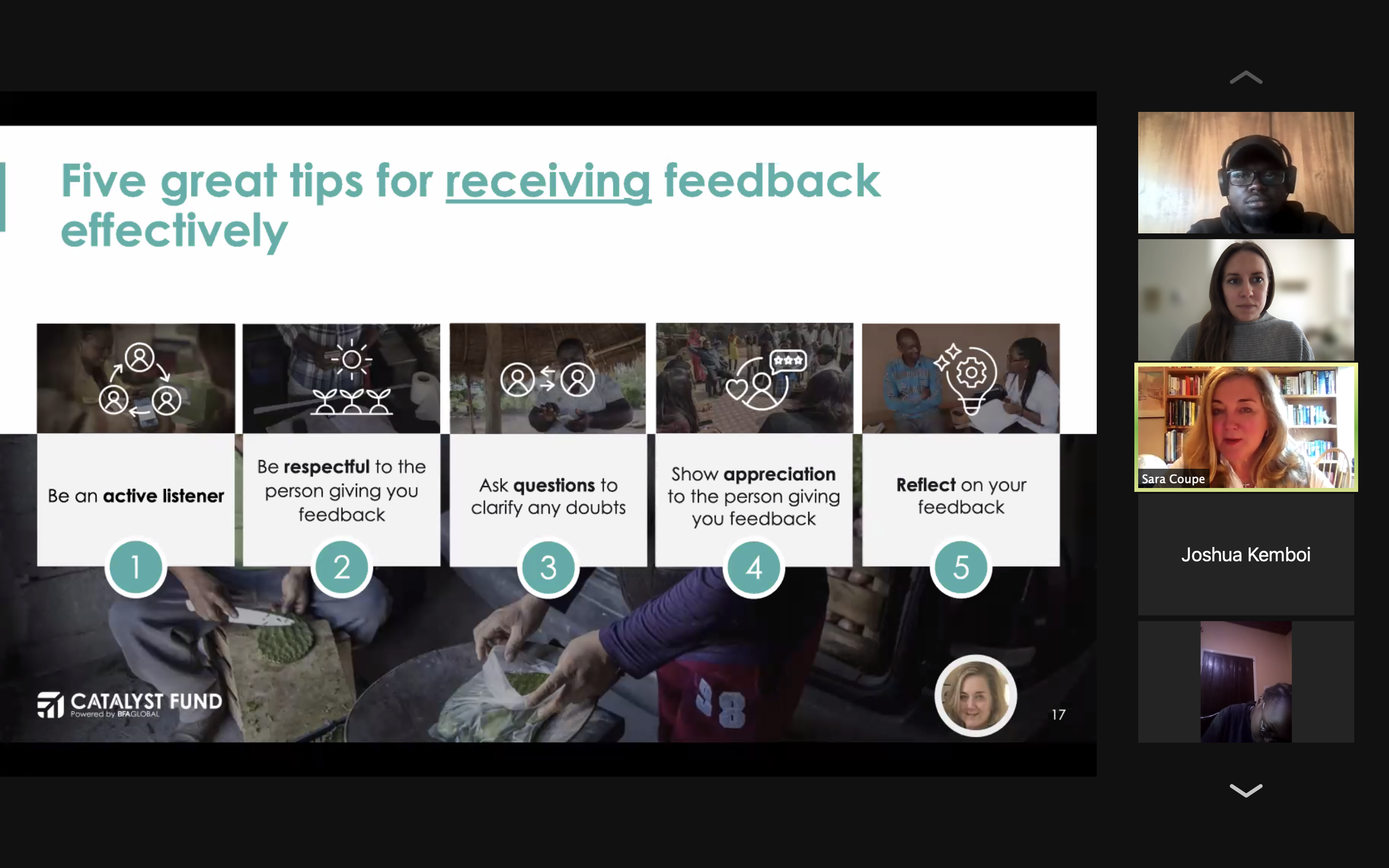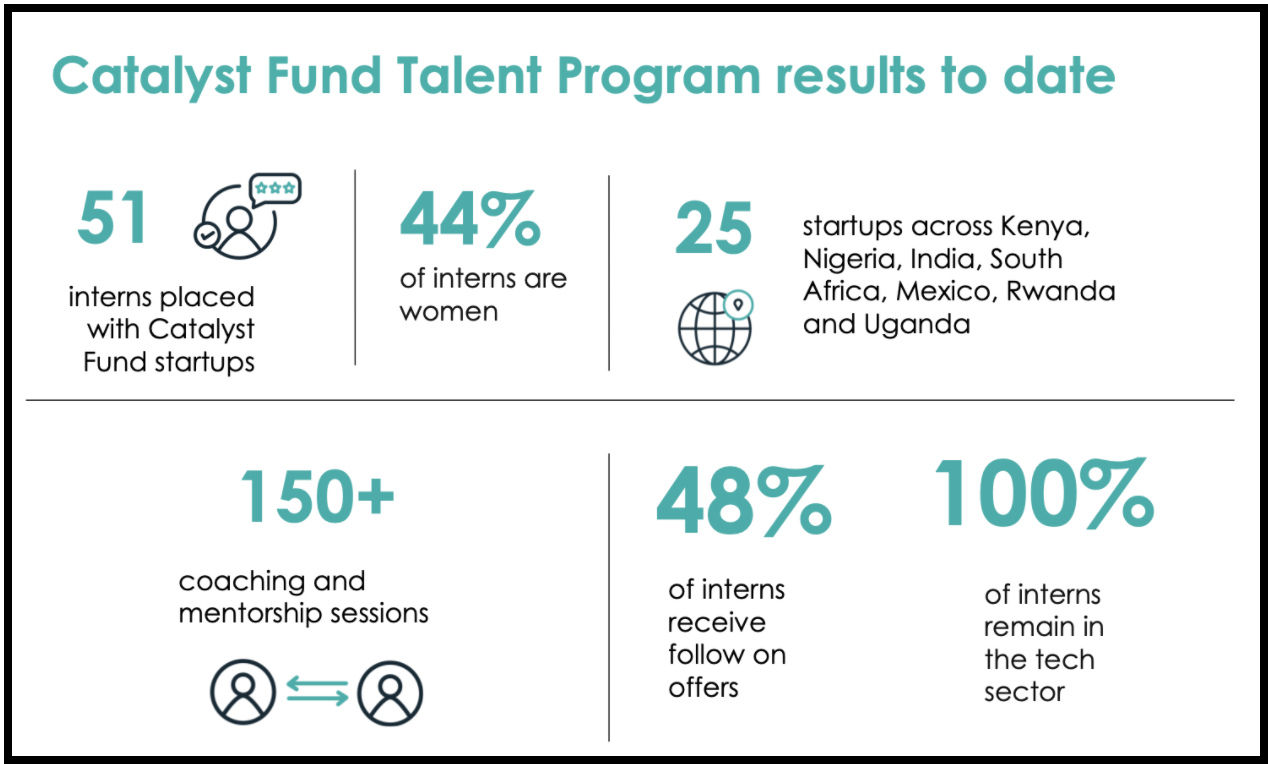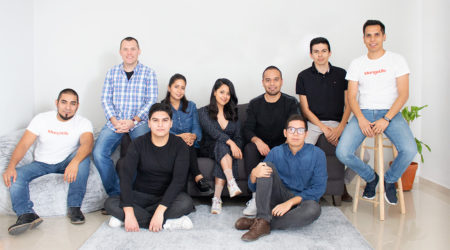4 tips for converting internships into full-time offers
The African fintech industry provides dynamic, exciting opportunities for junior professionals to kickstart their career. However, even as the tech industry is booming and hungry for talent, young graduates across the continent find it difficult to secure formal employment. This may be because tech companies prefer to hire candidates with experience, who can hit the ground running. That leaves many young professionals excluded from the job market; every year 10-12M youth enter the job market but only 3M formal jobs are created, leaving 30% of youth unemployed.
|
Given this dilemma, the Catalyst Fund Talent program seeks to de-risk young talent via internships. The internships provide startups a free “getting to know you” period, so that by the time a hiring decision needs to be made, young talent is already in place and delivering value. The internship provides them a first stepping stone and just enough experience to provide assurance of their value. The internship program not only delivers value to our startups as they build their teams, but also builds a pool of able, experienced talent to fuel the growth of the inclusive fintech sector more broadly.
To date, Catalyst Fund has placed 51 interns across 25 startups in five emerging markets. Of these 51 internships, 48% resulted in follow-on offers, and 100% of interns reported wanting to grow their careers in the fintech sector. Importantly, our program is also growing the pool of female talent in the sector; while only 30% of fintech employees are women (in the UK), 37% of our interns are women and 63% of the full-time offers to date have gone to women interns.
Our program builds on experience already proven in the US, where statistics show that 56% of interns get a full-time job from their internships. Moreover, students who have done an internship are 85% more likely to be employed in the first years after college and earn 6% more than students who did not.
However, getting an internship at a startup is not always an appealing offer to ambitious young graduates. Startups do not bring the prestige of established corporations and financial packages aren’t as compelling as those offered by large corporations, government agencies and NGOs. While startups in more mature markets compensate by offering stock ownership plans, these are still a rarity across the continent.
For young people who do decide to pursue a career in the tech sector, the path is still not easy. Most startup founders recruit from within their personal networks because they don’t have dedicated HR or people operations functions who can source and support junior hires, who may be less visible and require more vetting. Moreover, startups rarely have resources to subscribe to job posting boards and other systems to recruit junior hires.
The Catalyst Fund internship program effectively resolves these problems by providing an attractive stipend for interns as well as absorbing the recruitment burden from startups. However, we found that overcoming these challenges was not always enough to move young professionals from an internship to a full-time position. To start, we found that they lack experience negotiating salaries, which, coupled with a lack of understanding of startup funding continuums, puts them at a disadvantage in discussing terms for a full-time role. We also realized that interns who haven’t had jobs before need direct assistance navigating conversations and negotiating full-time offers.
In response, Catalyst Fund, in collaboration with Cambridge University, is offering interns monthly individual coaching and mentorship sessions, a soft-skills resource library, and group learning sessions on topics such as ‘converting your internship into a full time role’ where successful interns share their tactics and experiences. These support mechanisms have proven successful as our interns say they are more confident about approaching job conversations. We hope this confidence means that conversion rates will only increase as the program progresses.
We asked our interns to share their advice on how to secure full-time offers:
1. Initiate a conversation about the possibility of converting to full time early in your internship
During your internship, decide if you want to kickstart your career with this company and take the initiative to discuss converting to full time well before your end-date. You should not have the expectation that your supervisor will know this is what you want. Many students take internships for the experience and to develop their CV, rather than aim for a full time position, so you need to be clear about your goals and expectations with your supervisor.
Additionally, there may be some cases where startups just don’t have the funding to hire an intern as a full-time employee. It is critical to know if a full time role isn’t a possibility as early as possible.
2. Always raise your hand
The one thing you can expect as an intern at an early-stage startup is that job duties always go beyond the job description. Since there are so many moving pieces in the business, startups need all the help they can get. Therefore, being willing to take initiative in any area will help prove your value. Try to be outspoken, don’t sit back and wait for work to come to you. Rather, raise your hand, take the initiative to offer a helping hand to colleagues or your supervisor. Not only will this prove your value, but it will provide you valuable learning experience.
Kenneth Mpela, a data science intern at Catalyst Fund portfolio company Spoon Money says “I never imagined I would be in a market talking to our customers to understand their challenges with the product. I’m a data scientist! But acting like a team player gave me this chance!” Kenneth’s willingness to behave like a strong team player and his initiative to lend a helping hand ultimately allowed him to convert his intern role into a part-time consulting position.
3. Ask for feedback
Having regular check-ins with your supervisor is a great chance to ask for feedback on your performance. The feedback will allow you to improve your contributions during your internship and bring you one step closer to obtaining a full-time position. We understand that receiving feedback from your supervisor can be daunting and nerve racking, however it can be crucial to your growth. It is also a great way to discuss your problems and challenges, and to ask for clarification or help.
During one of our learning sessions, interns who were able to convert their role into a full-time position noted that the regular check-ins and feedback that they received from their supervisor and other work colleagues helped them improve on their work quality and knowledge, and, in turn, grow their career in the fintech sector.
4. Track your contributions
As mentioned earlier, working in an early-stage startup means you will have a chance to work on other tasks beyond your job description. Use this to your advantage. Keep a list of everything you have worked on from day one so when it comes to talking about future opportunities, you are able to showcase all the work you have done. Your supervisor will most likely remember all the great work you have been doing, however with everything on their plate they could forget some of the work you did early in your internship. Metrics and numbers to quantify the work you did and are proud of, will help jog their memory and remind them of all the great things you accomplished.
Demand for experienced talent across the continent is growing, and will only increase as funding for tech startups surges. However, companies report not being able to “fill vacant positions quickly enough with skilled talent. The result is that they are becoming increasingly reliant on expatriate workers, who constitute a ready supply of skills for specialist positions.” Roundtable participants at East Africa Comm agreed that even with available training, young entrants into the workforce need hands-on experience and real work exposure before they’re workplace-ready. This is what the Catalyst Fund program is providing and the value of the program is clearly evident in the results and the success of our interns.




